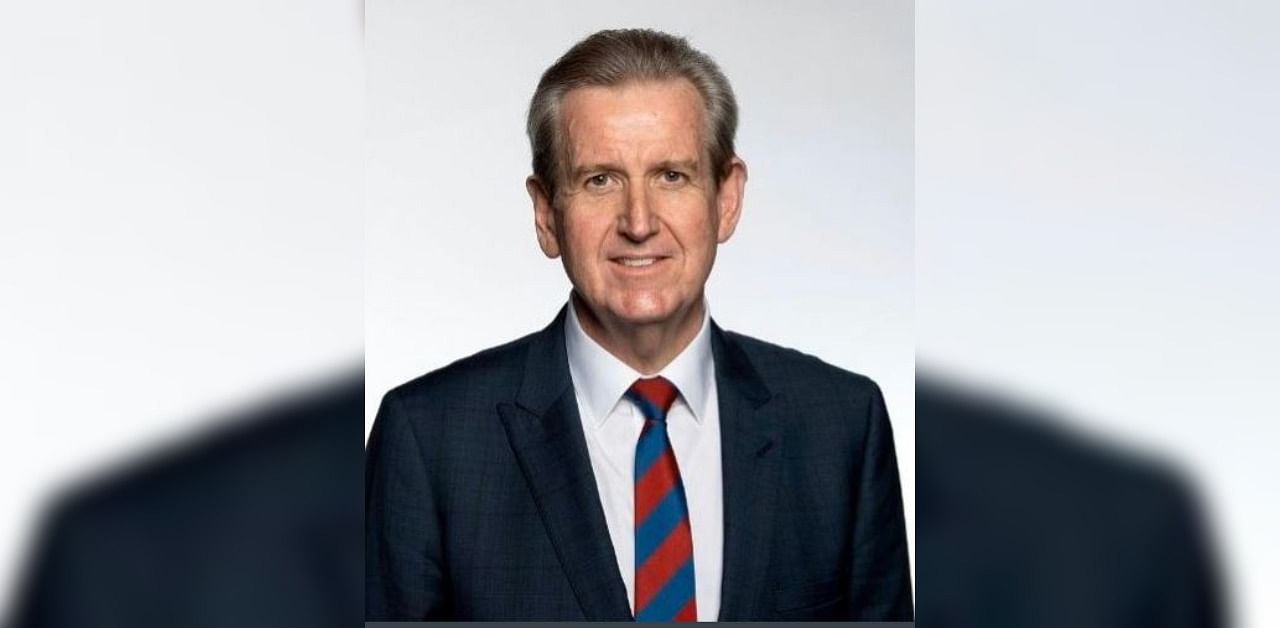
The envoys of Australia and China to India took a dig at each other on Twitter on Friday.
A day after Australian High Commissioner to India, Barry O’Farrell, tacitly asked China to refrain from unilaterally altering status quo along its disputed boundary with India as well as in South China Sea, Beijing’s envoy to New Delhi, Sun Weidong, took to Twitter to protest.
Sun accused O’Farrell of “disregarding facts” as he protested his comment on the South China Sea. He claimed China’s territorial sovereignty and maritime rights and interests were in conformity with the international laws including the United Nations Convention on the Law of the Sea (UNCLOS).
“Noted remarks by Australian HC to India on #SouthChinaSea disregarding facts. #China's territorial sovereignty & maritime rights & interests are in conformity w/ int'l law incl UNCLOS,” Sun posted on Twitter. “It's clear who safeguard peace & (and) stability & (and) who destabilize & (and) provoke escalation in the region.”
O’Farrell replied to Sun, expressing hope that China would abide by the 2016 award of the Arbitration Tribunal constituted under the UNCLOS on South China Sea.
The tribunal had rejected most of Beijing’s territorial claims in the South China Sea.
China, however, did not accept the award and continued its expansionist moves – rejecting the claims by Malaysia, Philippines, Brunei and Vietnam.
“Thank you @China_Amb_India. I would hope then you follow the 2016 South China Sea Arbitral Award, which is final and binding under international law,” tweeted Australian High Commissioner to India.
He also called upon China to “generally refrain from actions that unilaterally alter the status quo”.
Sun did not relent. He tweeted again late in the evening, stating that the award of the arbitral tribunal was illegal. “So-called arbitral tribunal of #SouthChinaSea violated principle of state consent. The award is illegal, null & (and) void & (and) has no binding force. China neither accepts nor recognizes it. We hope those non-claimant countries could contribute to regional peace & (and) stability rather than contrary,” tweeted China’s ambassador to India.
O’Farrell had a meeting with External Affairs Minister S Jaishankar on Thursday.
“Australia opposes any attempts to unilaterally alter the status quo (along India-China border), which only serve to increase tension and the risk of instability,” he said after the meeting. He also said that Australia urged restraint along the Line of Actual Control (LAC) – the de facto boundary between India and China – and supported continued moves towards de-escalation.
“It is important that the bilaterally agreed principles and norms that have helped prevent escalation or miscalculation in the border areas over many decades continue to be observed,” he said, tacitly asking Beijing to go by the pacts it inked with New Delhi since 1993 for maintenance of peace and tranquillity along the boundary between the two neighbours, pending the settlement of the dispute.
Sun earlier protested against a comment by British High Commissioner in New Delhi, Philip Barton, on the India-China stand-off.
Barton on July 23 indicated that Chinese Government’s move to impose its national security law in Hong Kong as well as its People’s Liberation Army’s aggression along the LAC with India were among the actions by the communist country that had posed challenges to the world.
Sun took to Twitter and strongly protested against the remark by the United Kingdom’s High Commissioner to India. “Noted remarks regarding #China by British High Commissioner to India, rife with mistakes & false allegations. Boundary question falls within bilateral scope of #China & #India. We have wisdom & capability to properly handle differences. No need for third party interference,” he tweeted on July 24.
